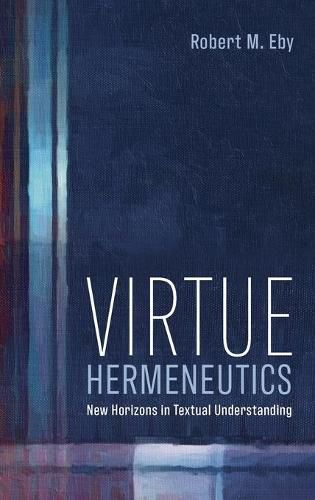Readings Newsletter
Become a Readings Member to make your shopping experience even easier.
Sign in or sign up for free!
You’re not far away from qualifying for FREE standard shipping within Australia
You’ve qualified for FREE standard shipping within Australia
The cart is loading…






This title is printed to order. This book may have been self-published. If so, we cannot guarantee the quality of the content. In the main most books will have gone through the editing process however some may not. We therefore suggest that you be aware of this before ordering this book. If in doubt check either the author or publisher’s details as we are unable to accept any returns unless they are faulty. Please contact us if you have any questions.
Contemporary hermeneutics is an unavoidable, but deeply troubled, discipline. At the root of the problem is the classic epistemological question,
What makes an interpretation justifiable?
Since the beginning of Modernity, interpreters have offered multiplied answers to this question. Historicity, linguistics, social constructs, and contemporary flashes of revelation are but a few of the proposed solutions, but if the question is ultimately epistemological, it follows that the answer may emerge from this same place. Current research in the field of virtue epistemology has awakened interest in a new path forward for hermeneutics by looking to a time before the emergence of unstable modern frameworks. In Virtue Hermeneutics, a justified understanding of Scripture that engages all of the participants in the interpretive dialogue (author, text, reader, and reading community) is discovered in the interpretive character of the wise reader. From this starting point, hermeneutics is able to move forward in a way that is responsive to contemporary challenges to discerning literary meaning. Ultimately, a justified understanding is one that virtuously engages the author, the text, and all reading communities. The illuminating work of the Holy Spirit in hermeneutics takes on a refreshing and meaning-filled place when readers readmit intellectual virtues into the discussion.
$9.00 standard shipping within Australia
FREE standard shipping within Australia for orders over $100.00
Express & International shipping calculated at checkout
This title is printed to order. This book may have been self-published. If so, we cannot guarantee the quality of the content. In the main most books will have gone through the editing process however some may not. We therefore suggest that you be aware of this before ordering this book. If in doubt check either the author or publisher’s details as we are unable to accept any returns unless they are faulty. Please contact us if you have any questions.
Contemporary hermeneutics is an unavoidable, but deeply troubled, discipline. At the root of the problem is the classic epistemological question,
What makes an interpretation justifiable?
Since the beginning of Modernity, interpreters have offered multiplied answers to this question. Historicity, linguistics, social constructs, and contemporary flashes of revelation are but a few of the proposed solutions, but if the question is ultimately epistemological, it follows that the answer may emerge from this same place. Current research in the field of virtue epistemology has awakened interest in a new path forward for hermeneutics by looking to a time before the emergence of unstable modern frameworks. In Virtue Hermeneutics, a justified understanding of Scripture that engages all of the participants in the interpretive dialogue (author, text, reader, and reading community) is discovered in the interpretive character of the wise reader. From this starting point, hermeneutics is able to move forward in a way that is responsive to contemporary challenges to discerning literary meaning. Ultimately, a justified understanding is one that virtuously engages the author, the text, and all reading communities. The illuminating work of the Holy Spirit in hermeneutics takes on a refreshing and meaning-filled place when readers readmit intellectual virtues into the discussion.